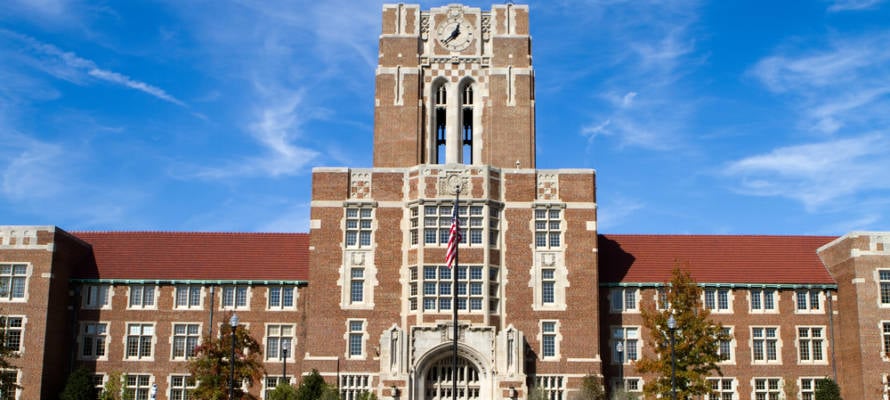Major Jewish campus groups rebuked the University of Tennessee, Knoxville (UTK) on Tuesday for failing to outright condemn anti-Semitism on campus, saying that the school’s approach to the issue was reckless.
By: The Algemeiner
Tammi Rossman-Benjamin, co-founder of the AMCHA Initiative — which combats, monitors and documents anti-Semitism at institutions of higher education in America — and Rabbi Aron Hier, director of the Simon Wiesenthal Center’s (SWC) campus outreach arm, were reacting to a statement released by UTK on Monday in response to an exclusive report by The Algemeiner last week highlighting anti-Semitism and racism at the school.
UTK must “vociferously condemn and repudiate any and all antisemitic statements and activities by past and present members of the campus community,” SWC’s Hier told The Algemeiner, while Rossman-Benjamin described the administration’s response as “irresponsible.”
“What UTK should have said was this type of speech is heinous and despicable and call it out as anti-Semitism, plain and simple,” she said.
In UTK’s statement, a spokesman downplayed the reports of campus antisemitism while defending the students’ rights to use offensive language, telling local television station ABC 6:
The university does not condone the statements included in the story; however, we believe those current and former students were within their constitutional rights to post their personal viewpoints. None of the statements included in the story was made on behalf of any of our student organizations.
According to AMCHA’s Rossman-Benjamin, while UTK is “technically correct that what was said by the students is a form of free speech,” the school’s response shows that “they don’t know the first thing about campus climate and the relationship between anti-Semitic expression and anti-Semitic action, action that really targets and harms Jewish students on campus.”
In July, AMCHA published a shocking report revealing the dramatic rise of anti-Semitic activity across more than 100 US college campuses between January and June 2016. The survey also found that Jewish college students are the largest university population “coming under systematic attack.” Reports out of UTK, Rossman-Benjamin said, should serve as a wake-up call for the university administration.
“AMCHA found in our two recent studies that there is a very direct and strong correlation between antisemitic expression — particularly anti-Semitic anti-Zionism expression — and incitement of anti-Jewish hostility which targets Jewish students for harm, assault, harassment, intimidation, suppression of speech and discrimination, all because they are Jewish. Whether or not this is currently the case on UTK’s campus, this type of rhetoric is creating a fertile ground for such incidents to happen,” she said.
UTK’s failure to outright condemn the rhetoric is a “lost opportunity,” Rossman-Benjamin said, adding, “University leaders have their own free speech to condemn. They can use good speech to condemn anti-Semitic and racist speech.”
Canary Mission — a secretive group that monitors anti-American, anti-Israel and anti-Semitic activities on college campuses — said it had uncovered a “disturbing trend” of extreme Jew-hatred and other forms of bigotry at UTK. This, the group said, is being spread by members connected to the school’s branches of Students for Justice in Palestine (SJP) and the Muslim Students Association (MSA).
One UTK SJP member proudly praised Nazi leader Adolf Hitler, tweeting, “Had to write about a leader for DCL class. Wrote about Hitler. Cuz he’s a boss.” A recent UTK graduate attacked a Jewish social media user, referring to “dirty filthy Jews,” while the founder of UTK’s SJP chapter tweeted in support for terror against Israel.
